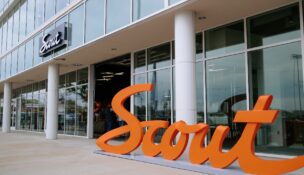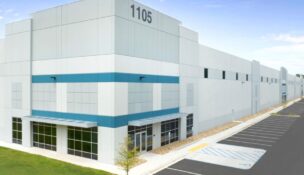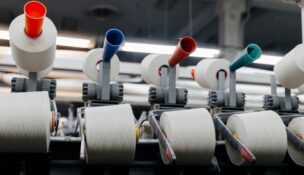Expansion problems in Anderson taking worldwide hit on Electrolux
Ross Norton //December 17, 2019//
The slow pace of expansion for Electrolux in Anderson is having a significant negative impact on the international company, causing more than half of a $70 million hit on its operating income for the fourth quarter.
Jonas Samuelson, president and CEO of the Sweden-headquartered company, said in a Sunday conference call with news media that “destocking” by a major American customer and some corrective accounting adjustments also played a role. He declined to break it down more specifically, but Samuelson said the cost of ramping up in Anderson was more than the other two factors combined.
In several announcements made over the last two years, Electrolux said it was closing one of two Anderson plants to create a more highly efficient plant. The company also closed a Minnesota plant to move freezer production to Anderson.
A $200 million expansion, later called a $250 million expansion, was planned for completion before the end of this year but the company has run into a series of challenges that have slowed the entire process and “technical snags have a very large impact,” Samuelson said. Meanwhile, Electrolux closed one Anderson plant as planned but put it back into production when the expansion bogged down. Closing the one Anderson plant and the Minnesota plant, combined with not having all four lines of the new facility operating, has also caused capacity challenges, he said.
Samuelson said he expects everything to be back on track, in terms production, in the second half of 2020.
“The savings will come from the fact that we will operate one high-capacity, very highly-automated factory as opposed to two not-highly automated factories,” he said. Samuelson said when fully operational, the Anderson plant will have a capacity of 3 million units annually, the “largest we have anywhere in the group.”
“This is primarily about the consolidation of American refrigerator and freezer manufacturing and related transitions to new platforms,” Samuelson said. “Capacity in our old facility has gone down and the new facility is not ready as soon as we anticipated. We are also impacted by the destocking of a key U.S. customer.”
Samuelson said he still expects the investment into the new Anderson plant to pay off and the company will start seeing it in the numbers in 2021.
He declined to name the destocking customer, referring to it only as “a very large customer,” but Samuelson said the retailer is engaged in a one-quarter plan to shift the way it handles inventory, and he has no reason to believe it’s a sign the customer — or the economy — is in trouble.
“We expect this to be confined to the fourth quarter,” he said.
According to a news release in July, when Electrolux gave away air conditioners valued at $230,000 to needy families in the area, the company employs 1,800 workers in Anderson.
s















